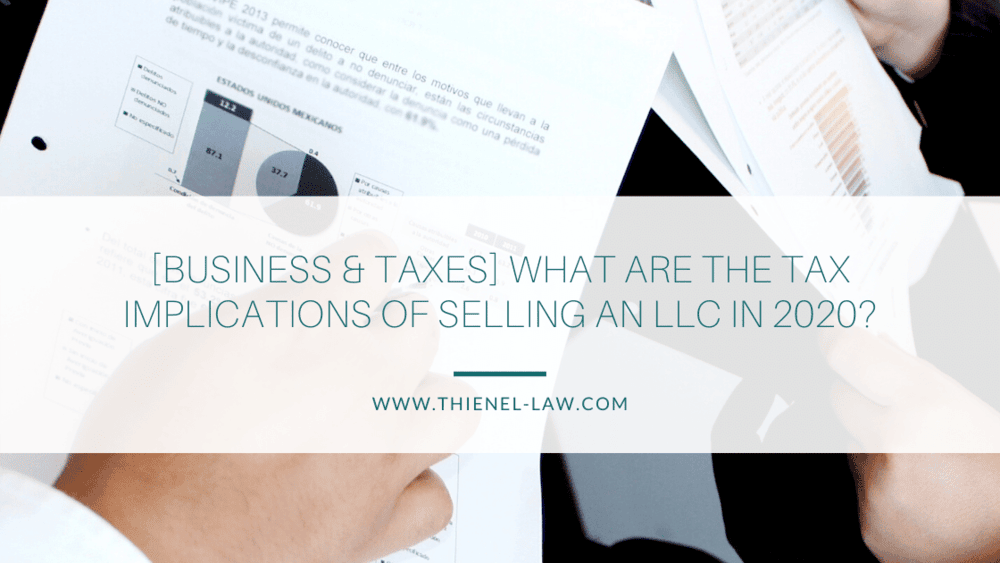[Business & Taxes] What are the Tax Implications of Selling an LLC in 2020?
Are you preparing to consult your DC fractional general counsel about selling your LLC (Limited Liability Company)? If so, there are some tax implications you might want to address with your attorney to ensure that you minimize any negative tax implications that could accompany the transfer of your LLC.
How Is Your LLC Taxed?
LLCs are not recognized by the Internal Revenue Service (IRS) as legal entities for tax purposes. The IRS has no specific tax classification for LLCs. Therefore, an LLC is taxed as if it was another type of legal entity.
The IRS automatically taxes sole member LLCs as sole proprietorships. Multi-member LLCs are automatically taxed as partnerships. Both types of legal entities are “pass-through” entities, which means that any profits from the business are “passed through” the business to the owners. The profits are taxed on the owners’ personal income tax returns.
LLCs may also elect to be taxed as C-Corporations or S-Corporations. An LLC that chooses to be taxed as a C-Corp pays corporate taxes on company profits before the profits are distributed to members. The members then pay individual income taxes on the profits they receive from the LLC. This process of taxing corporations is known as double taxation because the LLC and the members pay taxes on the same profits.
S-Corps are pass-through entities. An LLC that chooses to be taxed as an S-Corp does not pay taxes on its profits. However, LLC members must pay taxes on company profits, even if the LLC does not distribute those profits to the members.
“An LLC that chooses to be taxed as a C-Corp pays corporate taxes on company profits before the profits are distributed to members. ”
— Steve Thienel
Taxing Profits from an LLC Sale
Determining how your LLC is taxed is only one of the many factors that determine your tax liability for selling your LLC. Business can be sold through an asset sale or an entity sale. An asset sale involves selling the company’s intangible and tangible assets, but not selling the legal entity. An entity sale involves transferring the owners' interest in the company. The legal entity and its assets and liabilities are transferred to the new owner.
The sale of a single-member LLC is typically handled as an asset sale. The proceeds are passed through to the owner to be taxed on the owner’s personal income tax return.
Multi-member LLCs and LLCs that choose to be taxed as an S-Corp or C-Corp can be sold under an entity sale or an asset sale. The type of sale can substantially affect the type and amount of taxes owed by LLC members. Some members might be subject to capital gains taxes, depending on how long they have held an interest in the company.
Talk to a DC Fractional General Counsel Before Selling Your Business
The tax implications of selling an LLC can be complicated. The general summary above only highlights some of the tax consequences of selling a company. Depending on your specific situation, you might benefit from an equity sell instead of an asset sale and vice-versa. You might benefit from allocating assets in specific categories to avoid or minimize the taxes owed to the IRS.
A DC fractional general counsel reviews all aspects of a business ale to determine the best way to structure the sale to minimize taxes and maximize profits for business owners. Contact experienced business attorney Steve Thienel today. Consulting an attorney early in the sale process can result in much more money in your pocket when the sale is finalized and your tax returns are filed.




